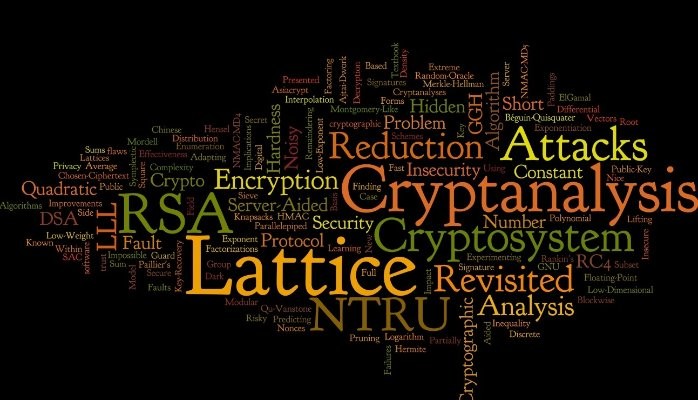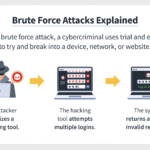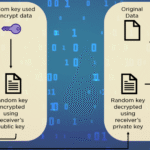In an age dominated by digital communication, the importance of cryptography cannot be overstated. Individuals and organizations alike wrestle with growing concerns about privacy, data integrity, and security threats. Owing to its intricate nature, cryptography captivates both the intellectual and practical realms, leading many to aspire to become adept in this discipline. Yet, embarking on the journey to become a cryptography expert requires more than mere enthusiasm; it necessitates a structured approach. This article delineates essential steps to set one on the path toward expertise in cryptography.
1. Grasp the Fundamentals of Mathematics
At the heart of cryptographic principles lies a robust mathematical foundation. Concepts such as number theory, probability, and discrete mathematics are pivotal. A deep understanding of prime numbers, modular arithmetic, and algorithm analysis forms the crux of cryptographic techniques. Engage with textbooks or online courses that delve into these mathematical principles. Familiarize yourself with topics like public key cryptography, symmetric keys, and hash functions. These core concepts will not only enhance your problem-solving skills but also offer insight into the rationale behind various cryptographic algorithms.
2. Explore Basic Cryptography Concepts
Once a solid mathematical foundation is established, it’s time to delve into the basic concepts of cryptography itself. Begin by understanding classical encryption methods such as the Caesar cipher, substitution ciphers, and Vigenère cipher. Despite their simplicity, these methods provide insight into the historical context of cryptography and showcase the evolution of encryption techniques. Conversely, study modern encryption standards like AES (Advanced Encryption Standard) and RSA (Rivest–Shamir–Adleman). Blendering historical and contemporary viewpoints enriches grasp of the field.
3. Proficiently Utilize Programming Languages
Cryptography is not solely theoretical; its real-world application often requires programming prowess. Knowledge of programming languages such as Python, Java, or C++ is indispensable. Python, with its extensive libraries like PyCrypto and hashlib, serves as a user-friendly platform to experiment with cryptographic concepts. Start by writing simple encryption and decryption scripts to see how different algorithms function in practice. Over time, you will develop the syntactical fluency necessary to manipulate cryptographic algorithms and contribute to secure software development.
4. Study Cryptographic Protocols
Understanding various cryptographic protocols is paramount for anyone aspiring to be an expert in the field. Protocols facilitate secure communication over potentially insecure channels. Familiarize yourself with Transport Layer Security (TLS), Secure Sockets Layer (SSL), and Public Key Infrastructure (PKI). These protocols serve as the backbone of internet security, establishing secure communication channels between users and websites. Analyzing how these protocols function will reveal potential vulnerabilities that can be exploited, thus enhancing your understanding of cryptography from a defensive perspective.
5. Engage with Academic Research
To elevate your understanding of cryptography, delve into academic research and publications. The field evolves rapidly; keeping abreast of new theories, methodologies, and technological advances is crucial. Reading peer-reviewed journals and papers provides exposure to current trends and cutting-edge discoveries. Platforms such as the International Association for Cryptologic Research (IACR) offer extensive resources and archives. Contributions from leading figures in the field will deepen your understanding and inspire further exploration.
6. Participate in Online Communities
Interaction with peers and experts in the cryptography space is invaluable. Online forums, discussion groups, and social media platforms provide platforms where enthusiasts can ask questions, share insights, and collaborate on projects. Engaging in communities such as Stack Overflow, GitHub, and cryptography-specific subreddits can accelerate your learning curve. Networking with like-minded individuals can also lead to collaborative projects or mentorship opportunities—both of which can prove instrumental in deepening your expertise.
7. Solve Cryptography Challenges
Nothing beats practical experience when it comes to mastering cryptography. Numerous platforms offer challenges and problems that range from beginner to advanced levels. The Cryptography section on sites like Cryptopals or CTF (Capture The Flag) competitions provide contexts in which your abilities can be tested and honed. These challenges encourage critical thinking, allowing for the practical application of theoretical knowledge. Working through puzzles under time constraints mirrors real-world problem-solving and strengthens your cognitive abilities.
8. Gain Knowledge in Cybersecurity
Cryptography forms a foundational aspect of broader cybersecurity practices. By understanding the intricacies of cybersecurity, you, as a cryptographer, will appreciate the context in which cryptographic solutions are deployed. Concepts such as ethical hacking, penetration testing, and risk management will enhance your cryptographic skill set. Pursuing certifications in cybersecurity—such as Certified Information Systems Security Professional (CISSP) or Certified Ethical Hacker (CEH)—can yield holistic knowledge essential for becoming a well-rounded expert.
9. Pursue Formal Education
While self-study and practical experience are key, formal education provides a structured learning pathway. Universities and online educational platforms offer degree programs and certifications specifically tailored to cryptography and information security. Pursuing a Bachelor’s or Master’s degree in Computer Science with a focus on cryptography instills both theory and practical skills. Engaging with coursework and professors can augment your understanding and provide mentorship opportunities.
10. Keep Learning and Adapting
The field of cryptography is perpetually evolving. New vulnerabilities, encryption techniques, and regulatory standards emerge regularly. Commitment to lifelong learning and adaptability is vital. Pursue ongoing education and stay informed about advances in technology and shifts in cryptography legislation. Attend seminars, webinars, and workshops, and collaborate on research projects to remain at the forefront of cryptographic study.
Becoming a cryptography expert is a determination-laden endeavor replete with intellectual reward and practical significance. By following these structured steps, you can build a solid foundation in cryptography, equip yourself with essential skills, and navigate the intricate world of secure communications. The intersection of theory and practice serves as both a challenge and an opportunity for growth within this fascinating domain.








Leave a Comment